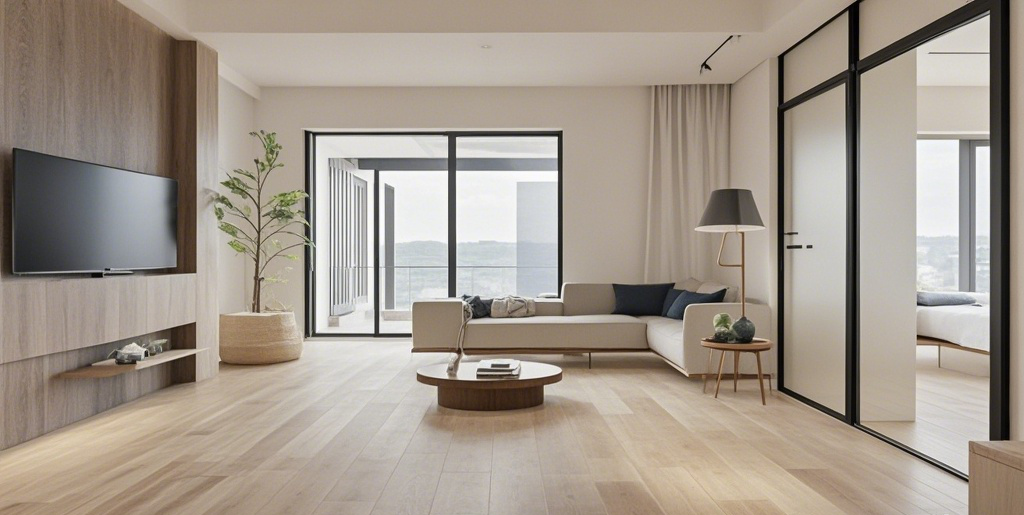
SPC flooring and LVP flooring comparison showcasing durability, design, and water resistance.
When choosing the perfect flooring, many homeowners struggle with selecting between SPC (Stone Plastic Composite) and LVP (Luxury Vinyl Plank). Picking the wrong type could lead to discomfort, frequent replacements, or unsatisfactory aesthetics. But understanding their differences ensures you make an informed, lasting decision. Which one is truly better?
SPC flooring excels in durability, water resistance, and stability, making it perfect for high-traffic and moisture-prone areas. LVP, on the other hand, offers comfort, style versatility, and affordability. Each has unique advantages, so the better option depends on your specific needs.
Both SPC and LVP are popular choices, but they suit different preferences and spaces. This comprehensive guide dives deep into the differences, advantages, and practical applications of these flooring types to help you choose wisely.
SPC flooring is more resistant to impacts than LVP.True
SPC has a rigid core that handles heavy use better than the softer core of LVP.
LVP is a better option for temperature stability.False
SPC's stone core provides superior temperature and humidity resistance.
SPC flooring feels softer underfoot than LVP.False
LVP has a more flexible construction, offering a softer and more cushioned feel underfoot.
What is SPC Flooring, and What Are Its Benefits?
SPC flooring is a type of rigid core vinyl flooring with a dense, stone-based core. This composition gives it unique advantages in durability, stability, and water resistance.
Key Benefits of SPC Flooring
Snippet Answer: SPC flooring is known for its unmatched durability, 100% waterproof nature, and ability to withstand temperature changes, making it ideal for high-traffic or moisture-prone areas like bathrooms and basements.
[SPC Flooring Featured Image Placeholder]
-
Superior Durability
SPC’s rigid stone composite core resists scratches, dents, and impacts, making it perfect for homes with pets, children, or heavy furniture. -
100% Waterproof
Unlike traditional wood floors, SPC is entirely waterproof, making it an excellent choice for bathrooms, kitchens, and laundry rooms. -
Temperature Stability
Its dense composition ensures minimal expansion and contraction, even in extreme climates or high humidity. -
Ease of Installation
Most SPC floors come with click-lock systems, enabling straightforward DIY installation over various surfaces, including concrete and tile.
| Feature | SPC Flooring |
|---|---|
| Core Composition | Stone Plastic Composite |
| Water Resistance | 100% Waterproof |
| Durability | Excellent – Scratch & Dent Proof |
| Best Use Cases | Bathrooms, Kitchens, High Traffic Areas |
SPC flooring is a top choice for durability and water resistance.True
SPC's rigid core ensures long-lasting performance in moisture-prone spaces.
What is LVP Flooring, and What Are Its Benefits?
Luxury Vinyl Plank (LVP) flooring mimics the look of hardwood while providing a softer, more comfortable surface. It is made with flexible PVC layers, giving it versatility in design and usage.
Key Benefits of LVP Flooring
Snippet Answer: LVP flooring offers a comfortable, stylish, and affordable alternative to traditional wood flooring, with moderate durability and water resistance suitable for most residential spaces.
[LVP Flooring Featured Image Placeholder]
-
Comfort Underfoot
Thanks to its flexible layers, LVP feels warmer and softer underfoot compared to SPC, reducing fatigue when standing for long periods. -
Design Versatility
LVP comes in a wide variety of wood and stone patterns, with realistic textures that closely mimic natural materials. -
Affordable Pricing
Generally, LVP costs less than SPC, making it a budget-friendly option for those who want quality flooring without breaking the bank. -
Adequate Water Resistance
While not as impervious as SPC, LVP is water-resistant and performs well in spaces like living rooms and bedrooms.
| Feature | LVP Flooring |
|---|---|
| Core Composition | Flexible PVC |
| Water Resistance | Moderate |
| Durability | Good – May Dent or Scratch |
| Best Use Cases | Living Rooms, Bedrooms, Offices |
LVP flooring is a more comfortable option for everyday use.True
Its softer PVC layers provide a cushioned feel compared to the rigid core of SPC.
How Do SPC and LVP Compare in Key Areas?
Comparing SPC and LVP across critical aspects helps clarify which flooring suits your space better. Below is an in-depth comparison:
Durability
- SPC: Rigid core resists heavy impacts, scratches, and dents.
- LVP: Softer core can dent under heavy furniture or sharp objects.
| Feature | SPC | LVP |
|---|---|---|
| Scratch Proof | Excellent | Moderate |
| Impact Proof | Superior | Good |
Water Resistance
- SPC: 100% waterproof, ideal for moisture-heavy environments.
- LVP: Water-resistant, but prolonged exposure may cause issues.
Installation
- Both options feature simple click-lock systems, but SPC is more rigid, making it slightly harder to cut and fit.
What Should You Choose: SPC or LVP?
Your choice depends on your specific needs. Here’s a quick breakdown:
Choose SPC if:
- You need flooring for high-traffic or moisture-prone areas.
- Durability and stability are your top priorities.
Choose LVP if:
- Comfort and aesthetics matter more.
- You want a budget-friendly option for low to moderate traffic spaces.
SPC flooring is better for bathrooms and basements than LVP.True
SPC's waterproof and stable properties make it ideal for high-moisture environments.
Final Thoughts
SPC flooring and LVP are both excellent options, each catering to different needs. SPC excels in durability, stability, and waterproof performance, while LVP offers comfort, affordability, and design flexibility. Understanding the unique strengths of each ensures you choose flooring that perfectly suits your home or business.
Call to Action
Still unsure which flooring suits your needs? Contact our flooring experts today for personalized advice and a free consultation. Let us help you make the right choice for your space and budget.


